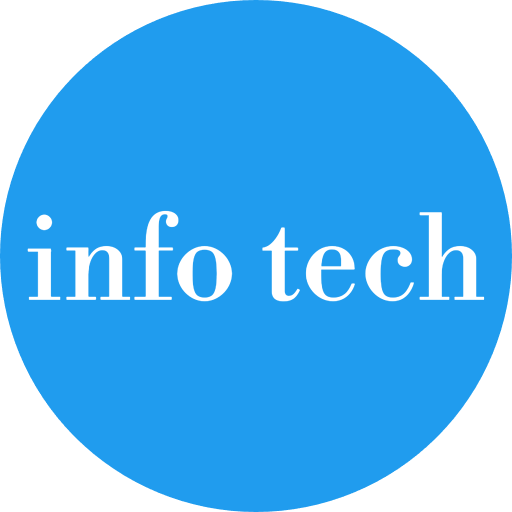Outline:
Introduction
Brief explanation of Artificial Intelligence (AI)
Importance of AI in the modern world
Introduction to AI in movies and its impact on entertainment industry
AI in Movies: A Brief History
Evolution of AI portrayal in movies over the decades
Pioneering movies that introduced AI to mainstream audience
Impact of technological advancements on AI representation in films
How AI is Portrayed in Movies
Overview of different AI character archetypes (villains, heroes, companions)
Examples of iconic AI characters from popular movies
Comparison of AI portrayals in science fiction and non-science fiction genres
The effect of AI on Movie-making
Role of AI in scriptwriting and generating story ideas
AI-driven special effects and visual enhancements
Use of AI algorithms in predicting audience preferences and trends
AI in Cinema: The Best, The wrost, and The Ethical
Positive impacts of AI in enhancing storytelling and visual effects
Negative aspects like potential job displacement in the movie industry
Ethical concerns related to AI, privacy, and creative freedom
Frequently Asked Questions (FAQs)
Common questions about AI in movies
Answers addressing misconceptions, technological realities, and future possibilities
 |
| AI , Artificial intelligence Movies. |
Introduction:
Artificial Intelligence, commonly known as AI, has become an integral part of our daily lives, revolutionizing the way we interact with technology. In recent years, AI has also made a significant mark in the entertainment industry, particularly in AI , Artificial intelligence Movies. This phenomenon has sparked discussions and debates about the ethical implications, creative boundaries, and the future of storytelling. In this comprehensive exploration, we will unravel the fascinating world of AI in movies, delving into its history, portrayal, influence on movie-making, and the ethical dilemmas it raises.
AI in Movies: A Brief History: The portrayal of AI , Artificial intelligence Movies. has come a long way since its inception. Early films like Fritz Lang’s "Metropolis" (1927) and Stanley Kubrick’s "2001: A Space Odyssey" (1968) introduced the concept of artificial intelligence to a wider audience. Over the years, AI characters evolved from mere robotic entities to complex, emotionally-driven beings, as seen in movies like Steven Spielberg’s "A.I. Artificial Intelligence" (2001) and Spike Jonze’s "Her" (2013). Technological advancements have played a pivotal role in enhancing the realism and depth of AI characters on screen.
How AI is Portrayed in Movies: AI characters in movies come in various archetypes, ranging from menacing villains like HAL 9000 from "2001: A Space Odyssey" to endearing companions like Wall-E from Pixar’s "Wall-E" (2008). These characters serve as reflections of our fascination and fear of artificial intelligence. In science fiction, AI often takes center stage, exploring complex themes of consciousness, identity, and the future of humanity. However, AI is not confined to sci-fi genres anymore; it has found its place in romantic dramas, comedies, and even animated films, showcasing its versatility in storytelling.
The Influence of AI on Movie-making: The impact of AI , Artificial intelligence Movies making processes is undeniable. AI algorithms are now used in generating script ideas, predicting box office success, and even assisting in editing and post-production work. Additionally, AI-driven special effects have revolutionized the visual aspect of cinema, enabling filmmakers to create breathtaking scenes that were once deemed impossible. The integration of AI technology has not only streamlined the filmmaking process but has also opened doors to innovative storytelling techniques, captivating audiences in ways never experienced before.
AI in Cinema: The Good, The Bad, and The Ethical: While AI has brought about numerous benefits to the entertainment industry, it is not without its challenges. One of the significant concerns is the potential displacement of jobs. As AI technology becomes more sophisticated, there is a growing fear that certain roles in the movie industry, such as animators and special effects artists, might be replaced by automated systems. Furthermore, ethical dilemmas regarding AI’s impact on creative freedom and privacy have surfaced. The use of AI in generating scripts and predicting audience preferences raises questions about the authenticity of art and the boundaries between human creativity and machine-generated content.
Frequently Asked Questions (FAQs):
Q1: Can AI really write movie scripts? Yes, AI algorithms can generate movie scripts based on specific parameters and data inputs. However, the creative nuances, emotions, and depth brought by human writers are still irreplaceable.
Q2: Are there any regulations regarding the use of AI in movies? As of now, there are no specific regulations governing the use of AI in movies. However, ethical guidelines are being discussed within the industry to ensure responsible and respectful use of AI technology.
Q3: Will AI completely replace human actors in the future? While AI can create realistic digital characters, the essence of human emotion and performance is irreplaceable. AI may enhance certain aspects of filmmaking, but human actors are likely to remain essential for authentic storytelling.
Q4: What are the potential benefits of AI in cinema? AI technology can enhance creativity, improve visual effects, optimize production processes, and provide valuable insights into audience preferences, leading to more engaging and successful movies.
conclusion:
, the integration of artificial intelligence in movies represents a thrilling frontier in the world of entertainment. As technology continues to advance, the line between imagination and reality blurs, giving rise to new possibilities and challenges. While AI has undoubtedly reshaped the way movies are made, the essence of storytelling, human creativity, and the emotional connection between the audience and the characters remain at the heart of cinematic experiences. As we navigate this ever-evolving landscape, embracing the potential of AI while addressing its ethical implications is essential to shaping a future where innovation and humanity coexist harmoniously in the realm of cinema.


0 Comments